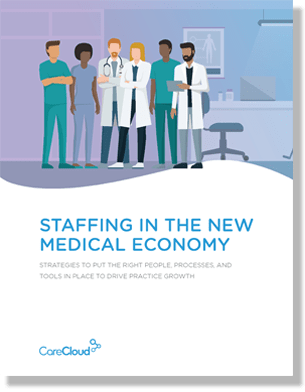By Leyl Black
When Yelp co-founder Jeremy Stoppelman caught the flu in 2004 and wanted to find a doctor, he went looking online for recommendations. If you remember the early days of the internet, you won’t be surprised to hear that his search came up short.
Fast forward a decade or so, and it’s hard to imagine choosing a doctor without first consulting Yelp. In fact, a recent study by a community health reviews firm showed that 84 percent of patients now use online reviews to evaluate physicians.
But soliciting and taking advantage of reviews can be tricky, especially for healthcare organizations. Here are three smart ways to do it.
1. Don’t be afraid to ask
While Yelp discourages businesses from asking for reviews to promote more authentic, unbiased content, there’s nothing in its terms of service that actually forbids you from doing so. In fact, MarketingLand recently asked Yelp about this directly, and the company confirmed that it’s OK to ask for reviews, as long as there’s no incentive involved.
In other words, go ahead and ask.
The best time to do this is right after the appointment, in the office: According to Marketing Land, in-person requests generate seven to eight times more reviews than asking via email.
If asking feels awkward or inappropriate (especially after a sensitive office visit), consider at least keeping your Yelp listing top-of-mind by putting a “Find Us On Yelp” sign in your office (using these brand assets) and adding a link to your Yelp listing in your email signature.
2. Amplify positive reviews (with permission)
Get more mileage out of your reviews by sharing them on your website, in your marketing collateral, and via social media. Yelp encourages this practice with guidelines such as:
- Don’t take it out of context (e.g., don’t excerpt a positive quote from a negative review).
- Stay faithful to the reviewer (e.g., no word substitutions or deletions).
- Don’t reuse photos with recognizable faces, as it infringes on personal privacy rights.
- Get permission from the reviewer and provide attribution.
Yelp also recently launched a new Embed Review feature, allowing businesses to embed their favorite reviews straight from Yelp onto their website or in blog posts and articles.
Remember to get written consent from your patients before you share or embed their review: As a healthcare organization, you’re not allowed to use protected health information without prior authorization, even if a patient posts it on Yelp.
Remember to get written consent from your patients before you share or embed their review: As a healthcare organization, you’re not allowed to use protected health information without prior authorization, even if a patient posts it on Yelp.
3. Be careful with your public response to reviewers
Finally, while you naturally want to thank patients for positive reviews, beware: According to Dr. Danika Brinda of Planet HIPAA, your public response must “never release any patient information or confirm that a patient was seen by the organization.”
For example, a patient leaves a positive review, and you respond publicly:
“Thanks for coming in today. I’m glad you had a great experience.”
As innocuous as it sounds, this response is a confirmation that the patient was seen at your office and is therefore a violation of HIPAA.
A better response would be:
“Thanks for sharing this feedback! We love to hear about positive experiences.”
In this case, you haven’t confirmed that the reviewer is your patient, so there’s no violation.
For more in-depth guidance on responding to reviews in a HIPAA-compliant manner, check out this terrific post by Dr. Brinda.
Best of luck!
Leyl Black is a marketing and communications executive with 20 years’ experience building high-impact programs for emerging companies. Most recently, she led the communications team at One Medical, which Fast Company named The #1 Most Innovative Company in Health in 2017. She is also a contributor to publications such as USA Today, Mashable, and Entrepreneur on marketing, PR, social media, and health tech topics.




